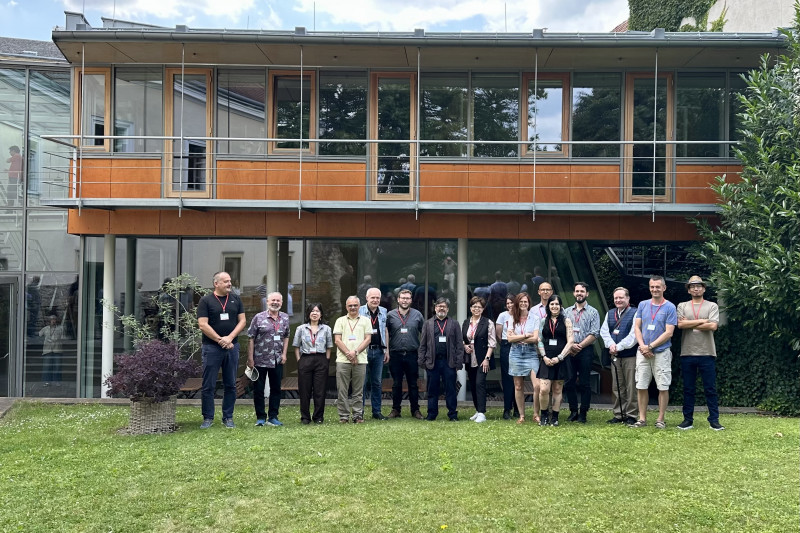News Details

The 43rd Altenberg Workshop in Theoretical Biology, “The Waddingtonian Landscape: Rediscovering Conrad Hal Waddington's Legacies in Biology and Beyond” (June 17–20, 2025), was devoted to the life and work of the British polymath Conrad Hal Waddington on the occasion of the 50th anniversary of his passing (1975–2025). Organized by Alejandro Fábregas-Tejeda (KU Leuven) and Francisco Vergara-Silva (National Autonomous University of Mexico), the workshop brought together philosophers of biology, evolutionary biologists, theoretical biologists, social scientists, historians of science, and historians of architecture from diverse backgrounds to offer the first interdisciplinary, critical reappraisal of Waddington’s lifelong work.
The contributions covered several key areas of Waddington’s influence and legacies. Participants examined the operationalization and heuristic uptake of Waddingtonian concepts and ideas in scientific models (Laura Nuño de la Rosa), with particular attention to the famous ‘epigenetic landscape’ (Scott Gilbert). The workshop explored Waddington’s influence in evolutionary biology, particularly in debates on canalizing selection (Laurent Loison), the conceptual backbone of the Extended Evolutionary Synthesis (Kevin Laland & John Odling-Smee), and his role in mentoring and cultivating empirical and theoretical research programs (Alejandra Petino Zappala). Moreover, scholars analyzed the explanatory weight Waddington allotted to genes and organisms and his relationship with genetics (Sahotra Sarkar), as well as his study of goal-directed behaviors and cognition in the last years of his career (Matthew Sims & Alejandro Fábregas-Tejeda).
During the second day of activities, the workshop examined Waddington’s philosophical influences, including Alfred North Whitehead’s processual thinking (Cassandra Zie Yang), and positioned his work within the shifting landscape of theoretical biology during the twentieth century (Jan Baedke). Participants explored the role of visual thinking, especially regarding the epigenetic landscape (Shani Inbar & Eva Jablonka), and the influence of organicist aesthetics in Waddington’s work (Guido I. Prieto). Moving across disciplinary divides, the workshop addressed Waddington’s philosophy of technology and his ideas on human interventions in the environment (Adam Scarfe), his conceptions of science and society and his participation in the war effort during the 1940s (Alejandro Fábregas-Tejeda), and the possibility of interpreting (Waddingtonian) epigenetics through decolonial lenses (Maurizio Meloni).
On the last day, scholars examined Waddington’s active involvement in ‘Ekistics’ (the science of human settlements), especially his relationship with the Greek architect and urban planner Constantinos Doxiadis (Panayiota Pyla), and considered the resonances and influences of Waddington’s ideas in contemporary anthropological work (Francisco Vergara-Silva).
Overall, the workshop provided an excellent opportunity to explore Waddington’s manifold legacies, his extensive body of work, his influences, biases, and shortcomings, his socio-cultural and institutional contexts, and his network of interlocutors and collaborators across a wide range of disciplines in the natural and social sciences, the arts, and the humanities.
(This workshop report was kindly contributed by Alejandro Fábregas-Tejeda and Francisco Vergara-Silva.)

